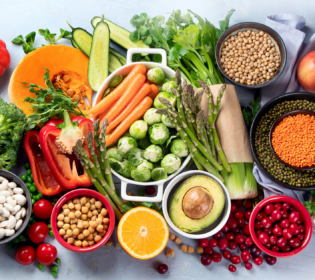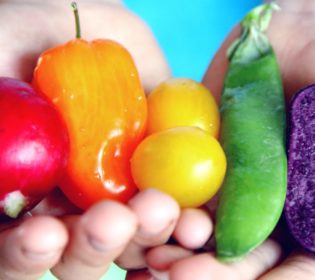The Rise of Meatless Meals Among Canadians
There was a time when, even after images of prototypes and multiple food formats surfaced, the world viewed meat alternatives with skepticism – about flavour, texture, and even their health and nutritional value. They were seen as options for those who don’t consume meat at all. For strict vegetarians and vegans only.
And while many still debate today about the nutritional value that newer forms of meat alternatives bring to the health of their consumers, there has been a growing adoption among those who want to increase the amount of vegetable-based protein in their diets, while consciously decreasing their intake of meat and animal-based protein.
Trends such as ‘Meatless Mondays’ have been promoted widely by more than just meat alternative manufacturers – nutritionists, food retailers, and even government bodies have jumped on board – endorsing the initiative on social media, in retail stores, and even through nutritional and health programs. Arguably one of the most dramatic shifts to a government created program occurred earlier this year with Health Canada publishing a revamped Canada Food Guide, suggesting that Canadians lessen the amount of animal-based proteins they consume, and supplement them with plant-based protein sources instead.

The Rise of the Flexitarian
With the rise of the ‘smart consumer’, an increasing number of people are questioning the nutritional value of the food in their diet, with many looking for ways to alter their diets. Flexitarians – those who consciously reduce their intake of meat-based protein while increasing the amount of plant-based protein in their diet without making a full commitment towards vegetarianism or veganism – are strong adopters of meat alternative products, citing health concerns (such as general health, avoiding major illnesses, and overall fat and cholesterol intake) as a contributing or main factor influencing their decision.
This is a powerfully growing consumer group helping to shape and evolve the flourishing meat alternative market. The demand for more products that flexitarians can easily relate to and transition into their diet has spurred many new meat alternative products and has helped push them forward into the mainstream market.
Environmentally Conscious Consumerism
While health is a major consideration for those embracing a flexitarian, vegetarian, and vegan diet, many also include environmental concerns as a source of their inspiration. With climate change being a topic on everyone’s minds – whatever their opinions on it may be – many are also analyzing how they contribute to it with what is on their dinner plates.
Consumers are researching the effects of meat production and processing, learning that it generates astonishing amounts of greenhouse gases, consumes large volumes of water and crops, contributes to the earth’s absorption of alarming levels of nitrogen and phosphorus fertilizers, and the endangerment and effect that all of this has on the biodiversity of both farmland surrounding regions and other global areas of land, air, and water. It’s not surprising to see why many are making the decision to contribute less – or not at all – to the meat production industry.
The Evolution of Meat Alternative Options
Many mainstream and artisanal manufacturers of meat alternative products have been producing vegetarian and vegan-friendly versions of versatile and beloved favourites like hot dogs, burgers, and ground beef for decades. But recently, a juicy take on meat alternatives has shaken the market – and consumers’ taste buds!
With so many flavourful options available – including Yves Veggie Cuisine and Gardein – and new brands and formats emerging all the time, the meatless market is attracting an increasing number of consumers every year. As the demand grows, so too does the availability and accessibility of meat alternative products in restaurants and fast food chains, grocery stores, and other food-carrying retailers.

Innovative technology continues to be used to produce and process new forms of meat alternatives and supply Canadians, and indeed the world, with a growing array of flavourful and intriguing culinary options. With more than half of Canadians currently enjoying meat alternative products, there’s no doubt that this is an industry that is going to continue to thrive at an increasingly rapid pace.






























